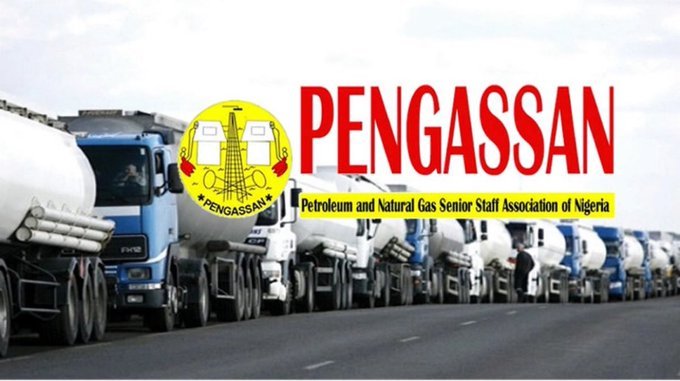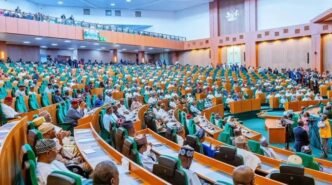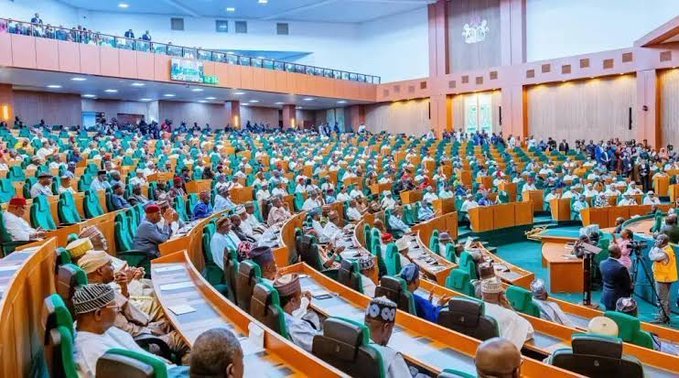The Petroleum and Natural Gas Senior Staff Association of Nigeria (PENGASSAN) has announced that it will embark on a nationwide strike effective 12:01 AM on Monday, September 29, 2025. The union has directed all its members across offices, companies, institutions, and government agencies to withdraw their services until further notice.
The Strike Declaration
The declaration, which came through an official communiqué from the national leadership of PENGASSAN on Sunday, has already sent shockwaves across the country’s petroleum and energy sector. According to the union, the decision was reached after weeks of unresolved disputes with both government agencies and private oil operators.
PENGASSAN stated that the strike was a last resort following what it described as “government’s insensitivity and management’s disregard for workers’ rights.” The union accused key stakeholders of failing to address issues ranging from job security, unfair labour practices, wage disparities, and the lack of proper dialogue on pressing industry concerns.
Background to the Industrial Action
PENGASSAN had, over the past few weeks, issued several warnings, including a strike notice, demanding urgent intervention by both the Federal Government and oil companies. The union cited the recent disputes with the Dangote Refinery and ongoing disagreements with the Nigerian National Petroleum Company Limited (NNPCL) over crude supply contracts, as well as welfare issues in several International Oil Companies (IOCs).
The breakdown of talks reportedly left the union with no alternative but to mobilize its members for a nationwide shutdown.
Scope of the Strike
The directive covers all members of PENGASSAN, including those in upstream, midstream, and downstream operations. This means that employees in refineries, crude oil terminals, gas plants, depots, and related offices will withdraw their services simultaneously.
By extension, the strike is expected to paralyze crude oil production, distribution of petroleum products, and administrative functions across multiple agencies and institutions.
Likely Impact on Nigeria’s Economy
The timing of the strike could not have been worse for Nigeria, a country heavily dependent on oil revenues and still battling inflationary pressures, forex instability, and high unemployment rates. With petroleum accounting for over 90 percent of Nigeria’s export earnings, a shutdown of operations threatens to deepen the country’s economic woes.
On the domestic front, petrol scarcity and long queues at filling stations are expected to resurface almost immediately after the strike begins. This could trigger panic buying, hoarding, and black-market activities, pushing fuel prices even higher.
Transportation costs, already a burden on ordinary Nigerians, are also likely to skyrocket, worsening the cost-of-living crisis. Businesses reliant on petrol and diesel generators may experience operational difficulties, while industries dependent on gas supply risk halting production.
Economists warn that a prolonged strike could cost Nigeria billions of Naira daily, weaken investor confidence, and exacerbate pressure on the Naira in the foreign exchange market.
Union’s Position
Speaking on the strike, PENGASSAN’s National President emphasized that the decision was not taken lightly but was necessary to defend workers’ dignity and the nation’s long-term energy future.
“We have exhausted every avenue for dialogue. Our members cannot continue to work under conditions of uncertainty, insecurity, and exploitation. The strike is a call to action not just for PENGASSAN members but for the soul of Nigeria’s oil and gas industry,” he said.
The union also warned against intimidation or threats from government or corporate entities, noting that it will hold any party accountable for actions that undermine the legitimate rights of workers.
Government’s Response
As of Sunday evening, there had been no official reaction from the Federal Government. However, sources within the Ministry of Labour and Employment hinted that urgent talks might be convened overnight in a bid to avert the strike.
The government is expected to weigh the risks of inaction against the socio-economic consequences of a total shutdown of the petroleum sector. Historically, strikes by PENGASSAN and its sister union, the Nigeria Union of Petroleum and Natural Gas Workers (NUPENG), have forced government concessions due to their disruptive power.
Public Reactions
News of the impending strike has sparked anxiety among Nigerians. In major cities such as Lagos, Abuja, and Port Harcourt, motorists were already rushing to filling stations on Sunday night to top up their tanks, fearing an imminent scarcity.
Social media platforms also buzzed with reactions, with many Nigerians pleading with both the government and PENGASSAN to resolve the dispute amicably. “We cannot afford another round of hardship. Government should act fast to prevent queues and black market fuel prices,” one user wrote.
Civil society groups have called for transparency in negotiations and urged both parties to prioritize national interest over corporate and political gains.
Historical Context
This is not the first time PENGASSAN is embarking on a nationwide strike. Over the past decades, the union has used strikes as a bargaining tool to press for reforms, wage reviews, and better working conditions in Nigeria’s oil and gas industry.
Past strikes have led to temporary fuel shortages, disruptions in crude export schedules, and billions of Naira in revenue losses. However, they have also forced dialogue and, in some cases, concessions that improved workers’ welfare and industry regulation.
Possible Way Forward
Analysts suggest that resolving the current impasse will require a multi-stakeholder approach. Key recommendations include:
- Immediate dialogue: Government must urgently engage PENGASSAN leadership at the highest level.
- Transparent negotiations: Both sides should agree to a time-bound framework to address disputes.
- Review of crude supply policies: Ongoing issues with NNPCL and private refineries must be addressed to stabilize the industry.
- Worker protection: Safeguards must be introduced to protect employees who choose union membership.
Conclusion
As the clock ticks toward the 12:01 AM deadline on September 29, Nigerians brace for the impact of PENGASSAN’s strike. The looming shutdown underscores the vulnerability of the nation’s economy to labour disputes in the oil and gas sector.
Unless urgent intervention occurs, the coming days could see another wave of petrol scarcity, transport disruptions, and economic strain. For now, all eyes remain on the Federal Government and PENGASSAN to see whether dialogue can still avert a crisis of national proportions.















I saw as at Sunday evening while am reading this Sunday morning this shows pengasson is selfish and part of Nigerians problem